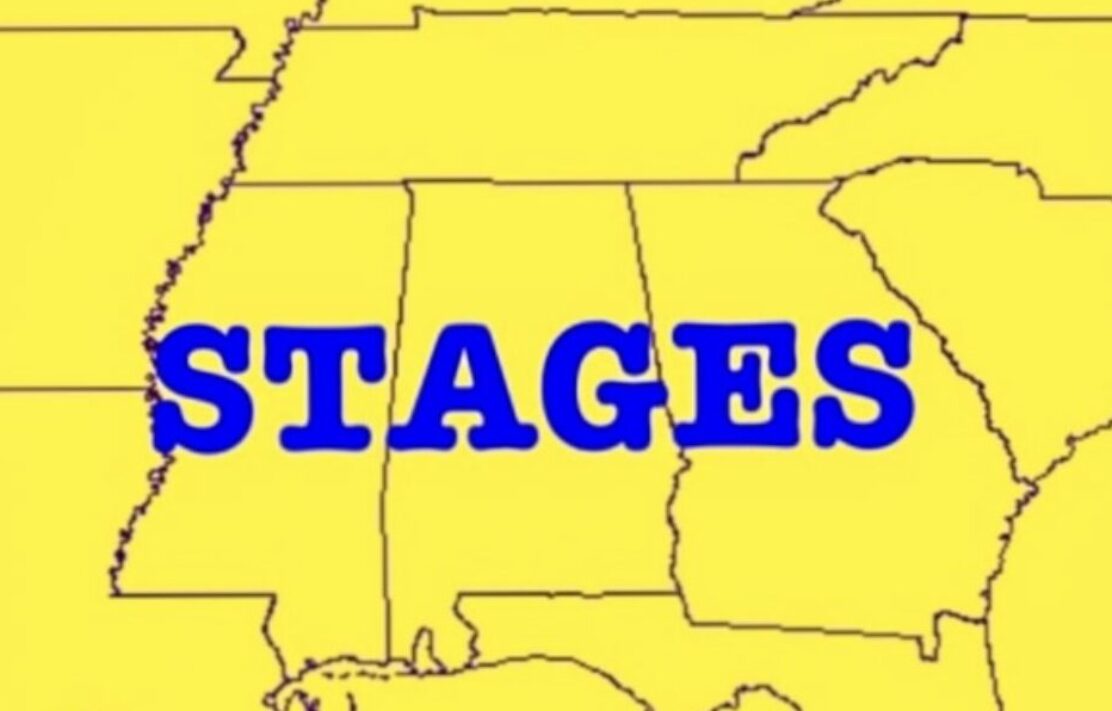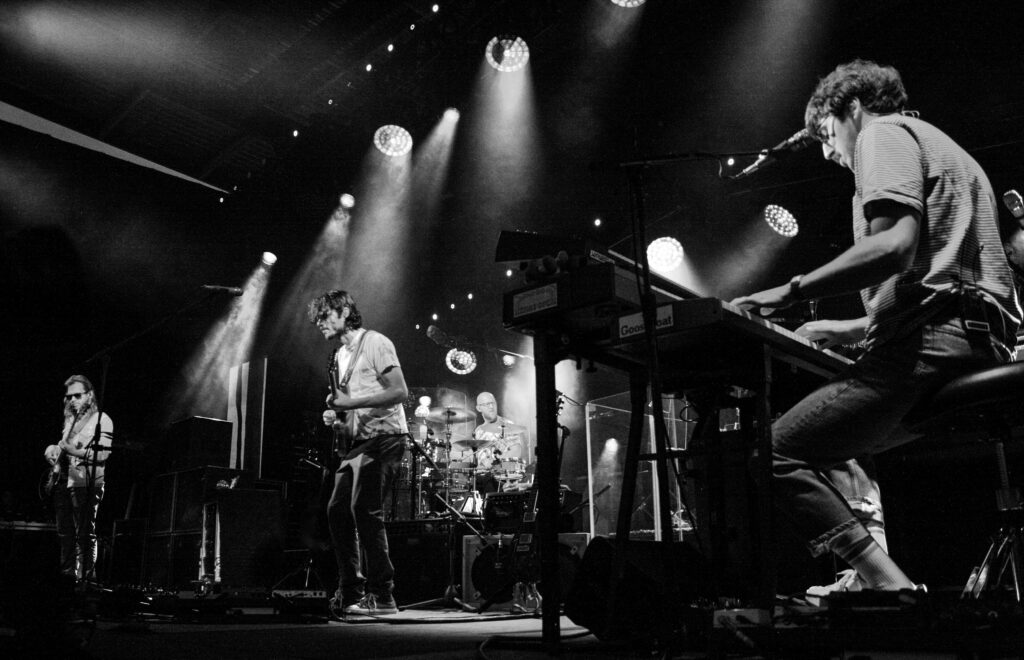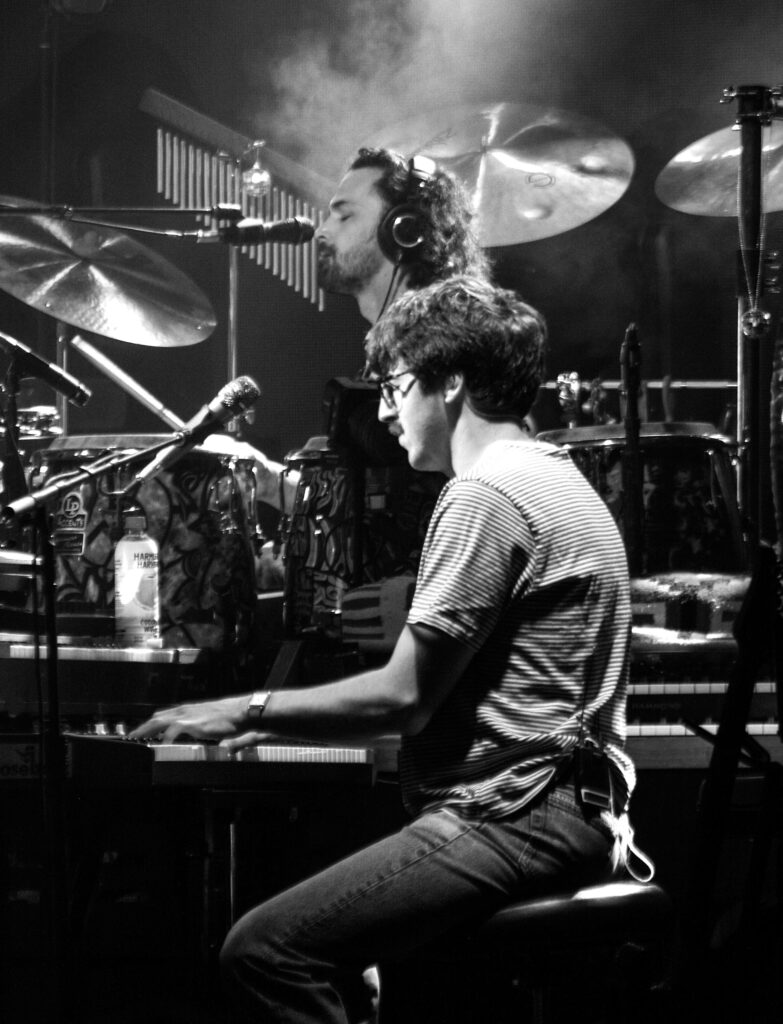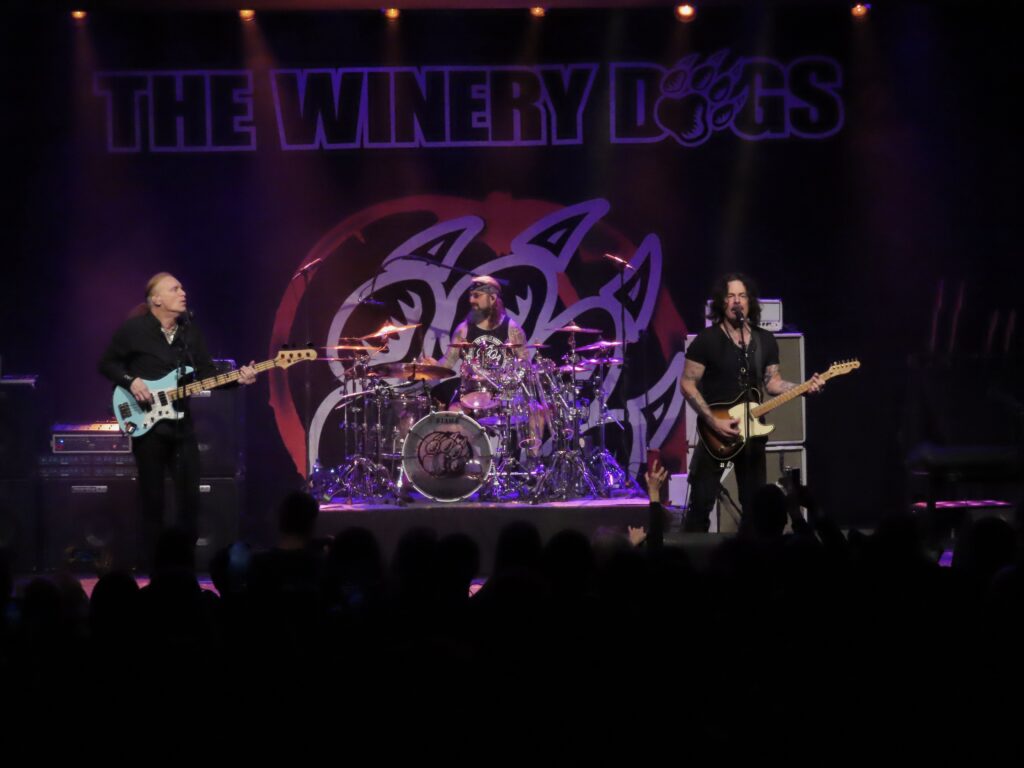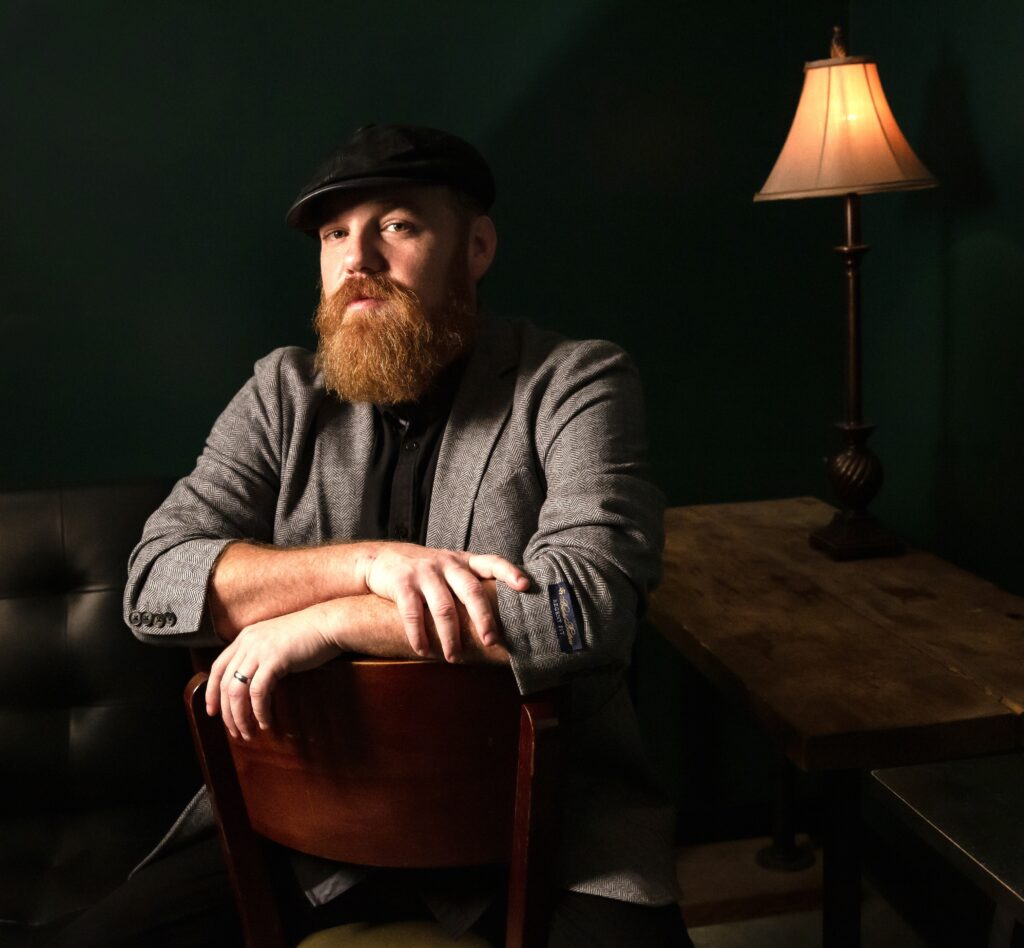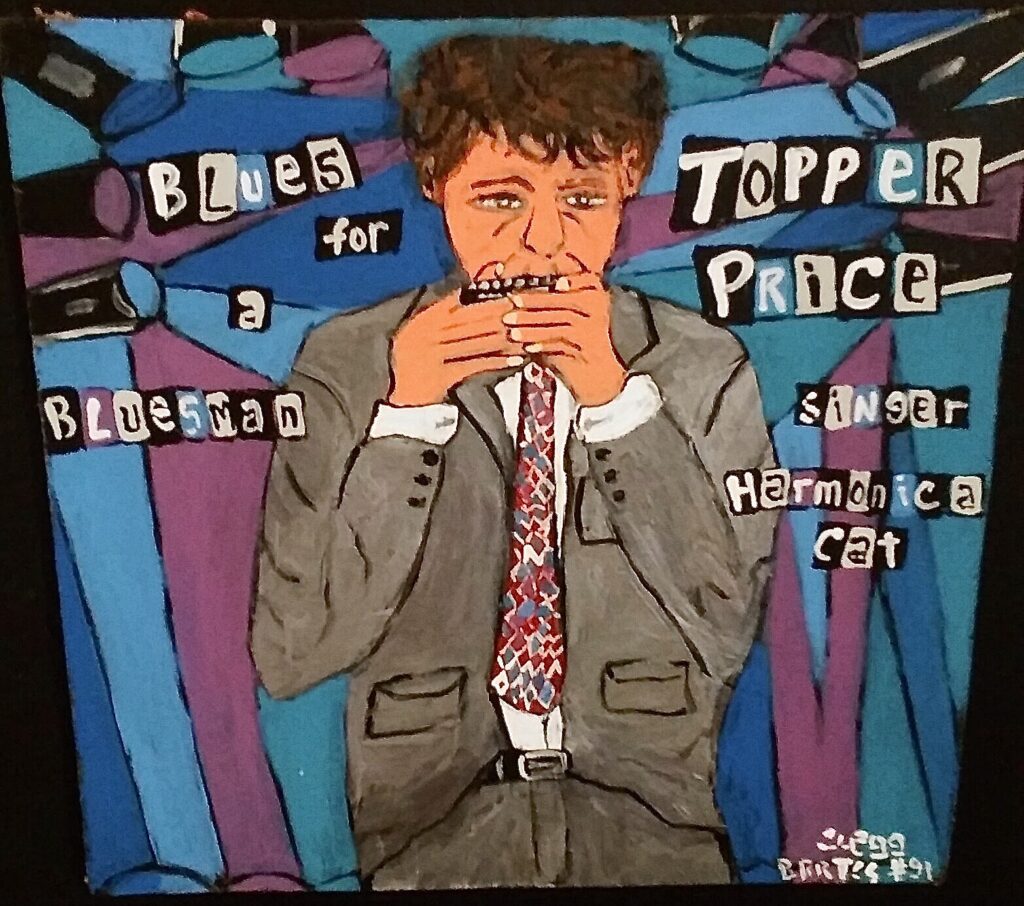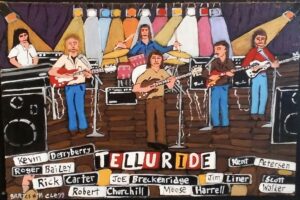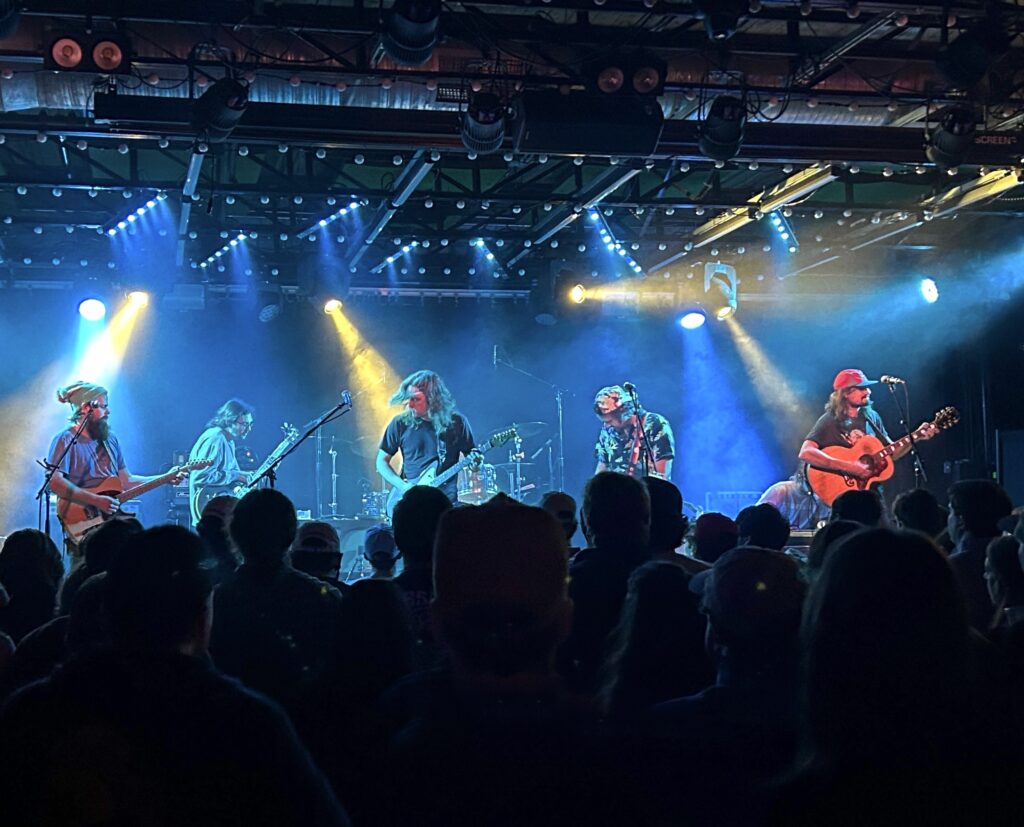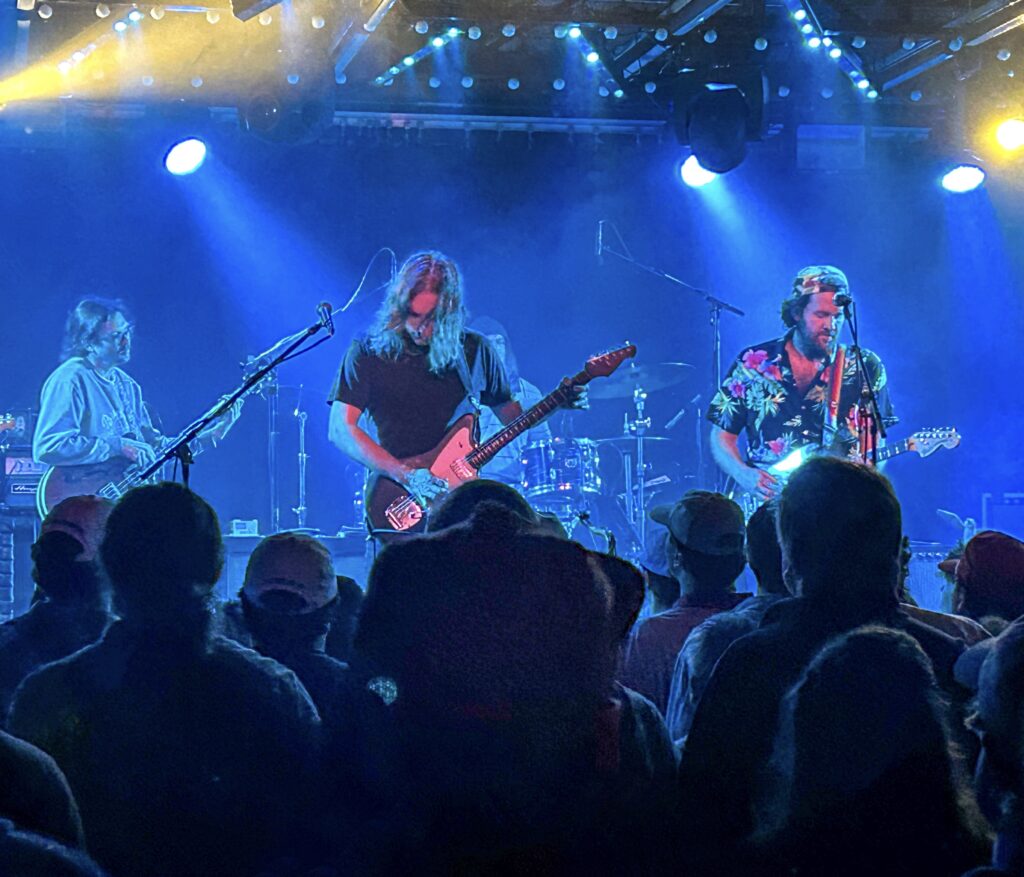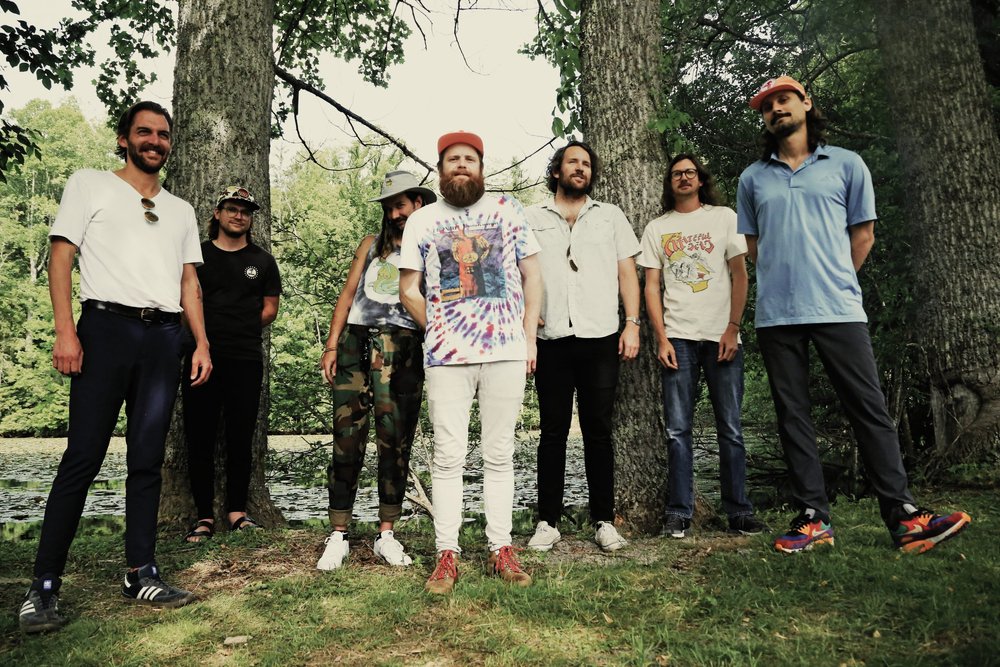By Brent Thompson
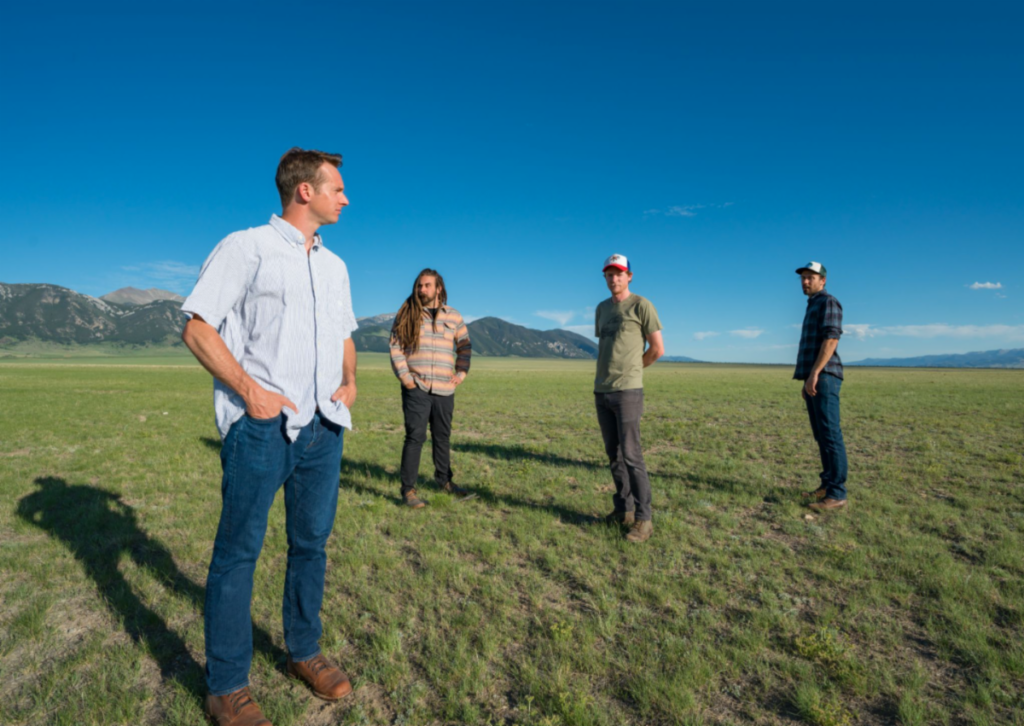
Photo Credit: Ed Coyle
Wise River winds 30 miles through the state of Montana and is also the title of the latest release by Kitchen Dwellers. The Bozeman, Mt.-based quartet – Torrin Daniels (banjo), Shawn Swain (mandolin), Joe Funk (bass) and Max Davies (guitar) – crafted the album during the Covid downtime. Produced by Cory Wong – a musician/producer best known for his work in the jazz and rock fields – the result is a 10-track effort that finds the band staying to true to its traditional roots while revealing an array of other influences. On Wednesday, April 19, Kitchen Dwellers will perform at Saturn. Recently, Daniels spoke with us by phone from his recently-adopted home of Portland, Or.
Southern Stages: Torrin, thanks for your time today. Where are you right now?
Torrin Daniels: We’re at home – I just moved to Oregon this last fall. Our bass player just had a baby a couple of days ago so we’re taking a little break right now.
Southern Stages: Where are the band’s members located these days?
Daniels: Up until this fall, we were all in Bozeman, Mt. Right around September, our bass player moved to Raleigh. N.C. and I moved to Portland. There are still two guys in Montana. I really like the Northwest and I’ve always enjoyed going on tour here and it’s not really that far from Montana.
Southern Stages: We are really enjoying Wise River. Are these songs older ideas that had been around for a while in bits and pieces, newer compositions or a mixture of both?
Daniels: Some were in bits and pieces, but most of them came about during the peak quarantine period of Covid in 2020. It was the most collaborative way we’ve written songs – we had a studio in Bozeman that we could go to every day. Since we weren’t on the road, it was a thing to do. We were able to go in and meet up with each other almost every day because we were lucky enough to still live in the same town and really put some time in on all those songs. We really crafted those songs together which we really hadn’t done before as a band.
Southern Stages: How did you guys end up working with Cory Wong?
Daniels: He reached out to our manager – he and some folks at our management company are friends. He had shown an interest in working with a string band and had never done that before. He’s kind of a wild guy and, even if something isn’t in his wheelhouse, he is adventurous and fearless enough to reach for that. We’re kind of a weird band as far as string bands go, so we said “Yes” to it and were excited to work with him on it.
Southern Stages: The commercial musical climate these days seems receptive to string band music given the success of your band, Billy Strings, Molly Tuttle, Greensky Bluegrass and others.
Daniels: I think that right now is a really exciting time in bluegrass and folk music and Americana. I think a lot of people that have been searching for their sound are finding it right now. This generation of bluegrass players and string band players, we are coming from a wider range of influences than a lot of bluegrass players have in the past. When you’re talking about bluegrass, there’s always a very high grade of musicianship. From our band’s standpoint, we’re just now getting to the sound we’ve been looking for. In the new songs we’re writing, you can hear a wide range of influences.
Southern Stages: Some artists tell me this is a great time to be in your position given instant access to listeners via Youtube, Spotify, satellite radio and other modern outlets. Others say it’s a difficult time for an artist to be found among the crowd. How do you view the current state of the industry?
Daniels: It’s weird because it really is a double-edge sword. It’s super accessible. If you know how to use the right avenues, you can find almost any given show that a lot of bands play nowadays. You can find that show recorded somewhere in some capacity – that did not use to be the case. If you hear a band did a one cover [song] on their tour, you can search for that video on Youtube and you can find that three minutes of specific music. But on the other hand, if people don’t feel like seeing you, they look you up on Spotify and make up their mind about you without ever seeing you. I always think of Pearl Jam – when they first became a band, it was a couple of groups coming together. They sold out their first five or six shows at larger theaters and no one had seen that particular band yet. Your music can be found anywhere nowadays, but some people definitely use that as an excuse to not go see your band. And there’s clutter too – there are tons of bands.
Southern Stages: How would you describe your band’s songwriting process?
Daniels: It can form in may ways in our band. It started with whoever’s song it was, they would almost finish it and get a very full idea of what they wanted the song to be and the rest of the band would finish it out. Nowadays, we have a lot more songs where someone just comes in with a melody or an idea of where they want the song to go and there are a lot more people adding and suggesting. It’s a lot more collaborative nowadays which I think has been producing some of the better songs that we’ve written
Southern Stages: Obviously, your band’s style of music lends itself to improvisation. But with that said, there are also songs you have played hundreds of times by now. How do those songs stay fresh for you after so many performances?
Daniels: Part of it is that we’re always working on our craft. As a bluegrass musician, you are always encouraged to re-examine your musicianship and always improve on your harmonies and rhythm playing. It’s as necessary to practice your rhythm playing as much as your lead playing. There are always different ways to improve on your playing and get better at bluegrass and string music. I think that is one of the ways we feel about good about songs we’ve played forever – we nail them more and more as we progress.
Kitchen Dwellers will perform at Saturn on Wednesday, April 19. Sicard Hollow will open the 8 p.m. show. Advance tickets to the 18+ show are $17 and can be purchased at www.saturnbirmingham.com.
